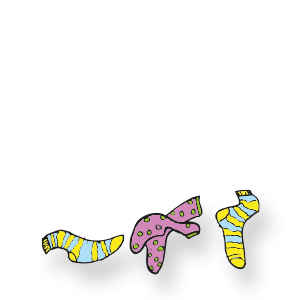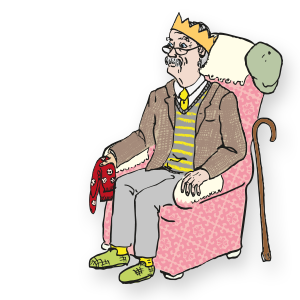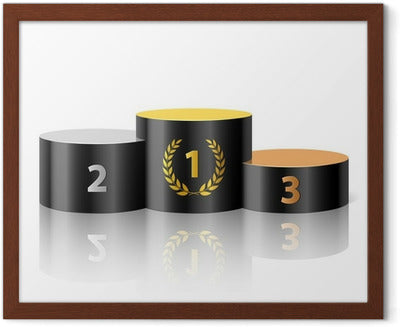

Overcoming your limiting belief

The story you tell yourself - Imposter Syndrome
It’s a rainy Saturday afternoon in January and I am sat in my study about to participate in an online webinar run by Ollie Coaching about Imposter Syndrome. You may be asking yourself why I would give up my Saturday and Sunday afternoon for this in the dreariest and hardest time of the year. Well, here’s the reason. I qualified as an Ollie Coach eighteen months ago and have since taken two other coaching courses. I have read endless books about coaching, watched several vlogs, read several blogs and attended one off webinars. So why am I not up and running as a full-time coach? The answer is simple; I suffer from something called Imposter Syndrome.
Alison Knowles, the founder of Ollie Coaching, says that Imposter Syndrome is when, regardless of achievements and successes, there is a little voice in your head telling you that you are not good enough, that you will be found out. Imposter Syndrome is not about subject matter or knowledge; it’s about self-worth.
So where does Imposter Syndrome come from? According to research there are a few potential causes and none of them relate to how qualified you are or how good your subject knowledge is. Alison lists the first one as Family and Environment; this can be high or low expectations and support from the family. If there is too much pressure put on you as a child, it may result in a feeling of not good enough, or conversely no pressure or low expectation can result in a feeling of not being worth much.
The second is Social Pressures; comparing yourself to others who are doing better than you or flying high. The third she suggests is Sense of Belonging; this can occur when you feel you don’t belong or fit into a certain environment, creating a feeling of being exposed and vulnerable.
In the pre-read booklet that I was sent for this course Alison details some of the characteristics of Imposter Syndrome: self doubt, undervaluing your contributions, setting unrealistic expectations, fear of not living up to expectations, burnout. As I read I begin to recognise a few of those symptoms for myself. Apparently there are even different types of Imposter syndrome: The Perfectionist; The Superwoman; The Natural Genius; The Soloist and The Expert. I begin to have an idea of what type of Imposter Syndrome I have as the screen flickers into life and Alison appears with her tribe of Ollie coaches.
As the afternoon progresses, we begin to learn that Imposter Syndrome is the story that you tell yourself because of life experiences that have made you believe that you are not good enough. As in all things, we are not born this way; they are what Alison calls “Limiting Beliefs”, learned behaviours and reactions to certain situations. As part of the course, I am paired up with another Ollie Coach, who will be my partner on this Imposter Syndrome programme, to explore reasons behind these limiting beliefs and to practise techniques to help me to change this way of thinking. I am introduced to Cat and straight away her warmth and active listening puts me at ease. Together we take it in turns to explore what our limiting beliefs are and where they have come from.
With expertise, Cat takes me back to the first time when I remember feeling not good enough, my age-old limiting belief. I am eleven years old and have just swum my one hundred meters freestyle in the Staffordshire County Championships, I have come second beating my long-time rival and bully. As I skip up the stairs to find my mum and dad, beaming and elated, my mum folds me into her arms and tells me how well I have done. As I turn to my dad, he says one short sentence to me “If you had just gone that bit faster, you would have come first” And there it is. The seeds of my self-doubt, the beginning of my perfectionism, the start of that long road of “must work harder” that will eventually lead to burn out. As Cat holds the space for me, I begin to realise that this is just a thought, this is just a limiting belief, this is not who I intrinsically am or who I can be. It’s a very powerful and emotional session but also incredibly liberating. Even after the session has ended, I notice that I feel lighter, happier and I sleep well.
The second session is further dedicated to the more practical technique of working out what our goals are and how to achieve them. Alison explains to us the 6-step goal method which helps us to identify our top goal and then work backwards to identify the six steps that will help us to achieve that. Once again, I am paired with Cat and together we identify our overall goal, our 6 steps that are needed to help us to get there and a basic timeline to keep us to track. Then we do the same process with each of the six steps starting at step one.
Quite quickly Cat and I have identified our goal and worked out the six steps needed to help us achieve that goal. My goal is to be up and running as an independent coach by September. We then repeat the process with the very first step and agree a time to have an online catch up to see how we are getting on. Two weeks pass and we then meet online again. Because I know I am accountable I have worked hard to achieve the first set of steps and now have begun discussions about my contract for the job I currently do and the possibility of part time flexible working. Two weeks later Cat and I meet up again and continue to identify and work on the next steps to help us achieve our goal.
It is now February, a month on from the Imposter Syndrome course. So, have I conquered my imposter syndrome, am I making strides forward to reach my goals? Well, I have negotiated a very part time flexible contract, I have sought advice about creating my own website and I am currently working on my call to action for that website. Oh, and I am writing this blog, which was another one of my goals. Has the Imposter Syndrome completely gone, is that self-limiting voice still there? Occasionally it pops up, usually when I’m tired or run down, but I know that I have all the tools I need within me to speak to that voice, to replace it with a kinder more supportive one. And the coaching? Watch this space!
Caroline Lawson, Ollie Coach
To get in touch with Caz please email C.lawson@ollieandhissuperpowers.com

